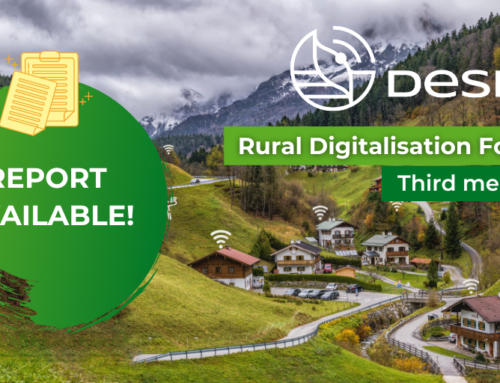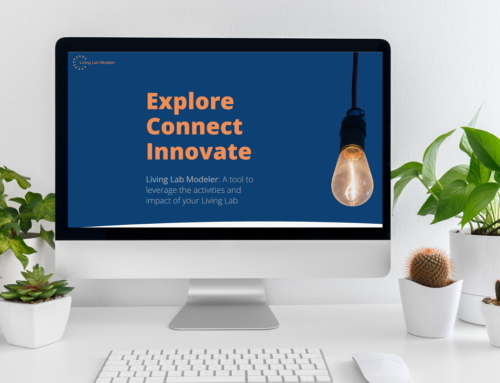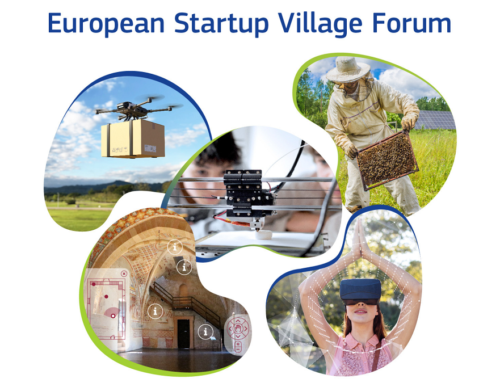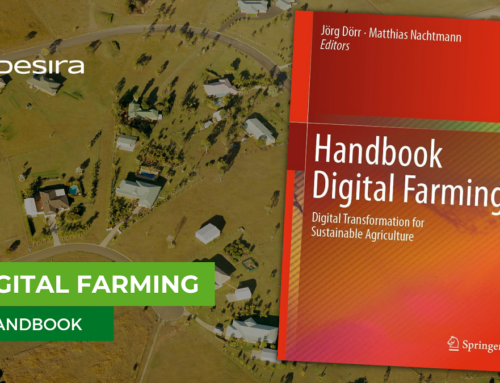Representatives from the DESIRA Living Labs met online on 28 April 2021, to exchange on their reports from Work Package 2 Assessing Past and Present Impact of digitalisation in relation to their focal questions.
The meeting facilitated a peer-to-peer feedback session among Living Labs to go through the findings, and discuss about the opportunities and next steps for the scenario building.
The 21 DESIRA Living Labs presented their preliminary reports divided in six thematic groups. Each group had a presentation from three Living Labs, followed by a discussion around three questions: (i) what commonalities and differences did LLs observe; (ii) tips and areas for improvements? and (iii) how could this needs, expectations and impacts (NEI) assessment exercise be useful for next steps (within DESIRA, with other projects and with other collaborations).
After the working groups, each facilitator, from the University of Pisa, reported in plenary some reflections from the discussions:
Group 1: Sustainable forestry management and trade
In the forestry sector, it is necessary to put social entities at the center of the digital transition. There is also a strong need to promote models that integrate expectations of the private sector, the public sector and civil society around digitalisation, to overcome misalignments and potential sources of conflicts.
Group 2: Bioeconomy and rural development
The COVID-19 crisis has put a lot of pressure and accelerated the process of digitalisation.
There is the need for a multidisciplinary approach to understand the complexity of the impact on rural areas. The group also reflected on whether the impact identified in the LLs is consistent with the focal question and whether there is room to review these linkages in the next steps.
Group 3: Farm diversification and short food supply chains
In relation to the evaluation of the impact of digitalisation, it is now clearer that the benefits are associated with costs and the use of resources, as skills or time. Digitalisation is an enabler, but also the opposite and the LLs reports have provided a lot of information to understand these elements.
Group 4: Smart villages and territories
The COVID-19 situation has had a catalytic effect on the digitalisation process. However, it is necessary to reflect about its long-term effects. The group reflected on the importance of infrastructure, and who would be responsible for covering its costs, but also noted that it is not the only need for digitalisation to occur.
Group 5: Sustainability of agricultural production
The main two questions that guided the discussion were: (i) how to involve people, especially farmers on the digital transition; and (ii) how to manage future regulations on digitalisation?
Group 6: Innovations in the agri-food sector
Different attitudes to the adoption of technology can affect the process of digital transformation, for instance the fear of being dependent on technologies and the advisor, or the barriers to access and connectivity.
The group reflected on the data business model to distribute and use data: (i) how to share data, (ii) who will elaborate data and (iii) who would own them.
At the beginning of the meeting Leanne Townsend, from James Hutton Institute, presented the proposal on the analysis of the gender dimension in this work package. After that, Matteo Metta (University of Pisa) provided a general overview on the Living Labs (LLs) reports in relation to the level of participations, strengths and weaknesses for the comparative analysis.
The final version of these reports will be ready by May 2021, and the main outcomes will be summarised and published in a series of Practice Abstracts. Following that, the University of Pisa will carry out a comparison analysis for Deliverable 2.2 Needs, Expectations and Impact (NEI) synthesis report, expected by September 2021.






